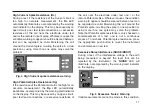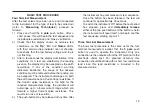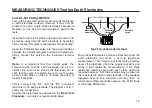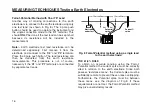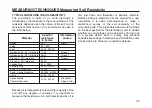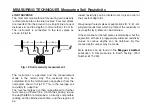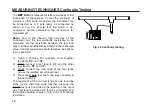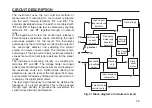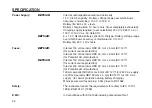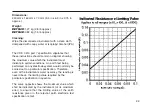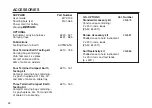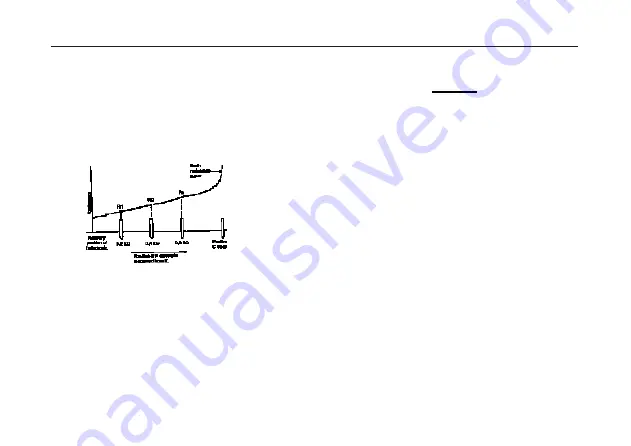
The earth resistance is measured at each separate
position of the Potential spike and the resistance curve
is plotted from the results. At least six readings are
needed. The diagram of Fig. 12 shows an example.
Drawing the curve will show up any incorrect points
which may be either rechecked or ignored.
Fig. 12 Resistance curve from Slope method tests.
Suppose the distance from the earth electrode system
to the current spike is EC. From the curve equivalent
resistance readings to Potential positions 0,2EC,
0,4EC and 0,6 EC can be found. These are called R1,
R2 and R3 respectively.
Calculate the slope coefficient µ, where
µ = (R3-R2)
(R2-R1)
which is a measure of the change of slope of the earth
resistance curve.
From the table on page 35 obtain the value of Pt / Ec
for this value of µ.
Pt is the distance to the Potential electrode at the
position where the ‘true’ resistance would be
measured.
Multiply the value of Pt / Ec by Ec to obtain the
distance Pt.
From the curve read off the value of resistance that
corresponds to this value of Pt. The value obtained is
the earth electrode system's resistance.
Note:- (i) If the value of µ obtained is not covered in
the table then the current spike will have to be moved
further away from the earthing system.
(ii) If it is necessary, further sets of test results
can be obtained with different values of EC, or different
directions of the line of EC. From the results obtained
of the resistance for various values of the distance EC
19
Содержание DET5/4D
Страница 41: ...41...







